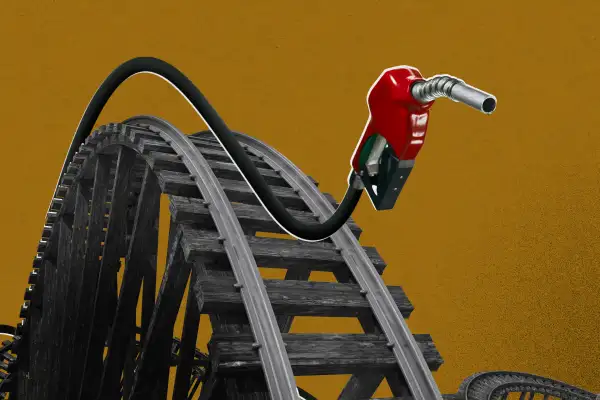Gas Prices Finally Drop Below $4 in Most States

Gas prices are finally falling back to Earth.
Just one month ago, the price of a gallon of regular gas averaged an all-time high of $4.33 in the U.S. Prices had risen a staggering 22% between February 21 and March 14 — the largest jump ever recorded in a three-week span.
Now, the market is swinging the other way. On Monday a gallon of gas cost $4.11 on average across the entire country, and experts expect prices to keep on dropping in the days ahead.
“Gas prices have continued to move in the right direction — down — saving Americans approximately $100 million every day compared to when prices peaked about a month ago,” Patrick De Haan, head of petroleum analysis at GasBuddy, said in a blog post on Monday.
De Haan added that “more good news is on the horizon: The national average this week will likely fall back under the critical $4 per gallon mark.”
Prices have already fallen below that threshold in 28 states. The lowest prices in the country can be found in Missouri and Oklahoma, where one gallon of regular gas costs an average of $3.67.
To help lower prices for consumers, a handful of states including Maryland and Georgia have paused their gas taxes. Some lawmakers have floated sending cash to Americans to offset high prices — like stimulus checks for gas. Last week, the Biden Administration announced that it would release up to 180 million barrels of oil from the United States' strategic reserve in order to bring down prices.
Meanwhile, gas prices are still averaging above $4.50 a gallon along the West Coast. As usual, the country’s highest prices are in California, where one gallon of regular costs $5.76. The states with the highest gas prices in the East are New York and Pennsylvania, where the average is a little over $4.20 for both.
Much of the huge spike in gas prices in early 2022 was caused by the Russian invasion of Ukraine and subsequent sanctions on Russia’s economy, which sent the price of crude oil soaring because Russia is a major global oil producer.
According to the U.S. Energy Information Administration, crude oil prices account for about 61% of the cost of producing gasoline. In other words: when crude oil gets more expensive, so does gas. Add soaring demand for fuel into the mix, and you have a recipe for sky-high prices at the pump. The flip side is that, as crude oil prices and demand for consumer gasoline decrease, gas prices drop as well.
Crude prices have fallen from more than $120 per barrel a few weeks ago to under $100 per barrel today, and AAA noted in a blog post Monday that retail gasoline prices will likely come down even further if crude oil prices remain under that threshold.
"Although supply and demand factors would have typically supported elevated pump prices, the fluctuating oil price continues to be the main factor influencing pump prices," AAA stated. "Pump prices will likely face downward pressure if oil prices remain below $100 per barrel."
More from Money:
Gas Prices Just Rose at the Fastest Pace Ever Recorded

